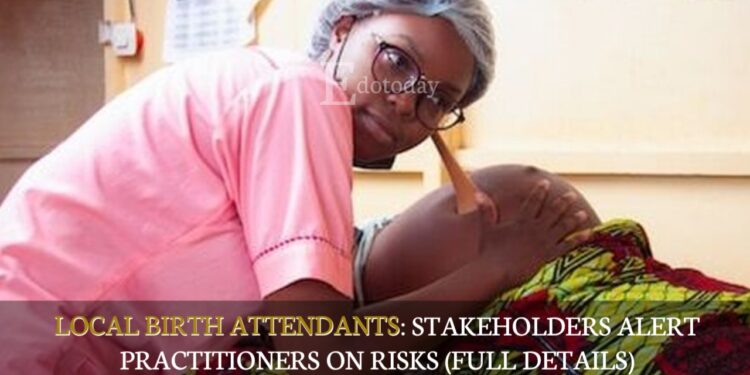The importance of traditional birth attendants being cautious during births to reduce hazards to mothers and newborns has been underlined by Senator Neda Imasuen, who represents the Edo South Senatorial District.
At a three-day training program for traditional birth attendants from Edo State’s Ovia North East and Ovia South West Local Government Areas, which was hosted at the NUJ Press Center in Benin City, the senator made the statement.
The training, with the theme, “Training of Traditional Birth Attendants in Early Pregnancy Care and the Referral Mechanisms,” was organised at the instance of Senator Imasuen, and is aimed to equip traditional birth attendants with critical skills for safe delivery practices.
In order to preserve the mother’s and baby’s lives, the senator advised participants to send patients to hospitals as soon as possible when complications arise.
Imasuen revealed that the training program would be ongoing and urged the Primary Health Care Development Agency to be a key player in maintaining these kinds of programs. Additionally, he urged participants to focus intently on the lessons and use what they learned in their practice.
During his opening remarks, Edo State Commissioner for Health Dr. Cyril Adams Oshiomhole emphasized the importance of traditional birth attendants, especially in rural regions with limited access to healthcare facilities. He emphasized that in order to improve the health outcomes for mothers and newborns, they must learn contemporary skills.
Oshiomhole who emphasised the role of Traditional birth attendants, said, “they are trusted members of their communities. Women and their families turn to you for support, guidance, and care during one of the most important periods of their lives. This trust makes you not just caregivers but also pillars of maternal health at the grassroots level.”
“However, we are all aware that the risks associated with pregnancy and childbirth can sometimes exceed the resources available to TBAs.”
“Complications such as severe bleeding, infections, and hypertension require swift and effective referral to more specialised healthcare services. It is, therefore, essential to bridge the gap between traditional and modern healthcare systems.”
“This programme will equip you with the skills to provide pregnant women with accurate information about early pregnancy care, nutrition, danger signs, and the importance of regular antenatal visits,” the health commissioner declared.
Guest speaker, Dr. Marveson Ima Obasogie, Director of Primary Health Care in Edo State, highlighted the importance of government support for traditional birth attendants, recognizing them as first responders in many cases.
Obasogie said the training programme, themed “Role of Traditional Birth Attendants in Early Pregnancy Care and Referral Mechanisms,” was focused on enhancing the participants’ understanding of early pregnancy care and the importance of timely hospital referrals.
“The initiative is expected to improve maternal health outcomes in rural communities across Edo State,” he said.












